This article is being considered for deletion in accordance with Wikipedia's deletion policy. Please share your thoughts on the matter at this article's entry on the Articles for deletion page. |
This is a list of countries by the average number of years of school attended by women between 25 and 34 years old, including primary, secondary and tertiary education published by Gapminder Foundation in 2015. [1]

A woman is a female human being. The word woman is usually reserved for an adult; girl is the usual term for a female child or adolescent. The plural women is also sometimes used for female humans, regardless of age, as in phrases such as "women's rights".

Home economics, domestic science or home science is a field of study that deals with the relationship between individuals, families, communities, and the environment in which they live. Home economics courses are offered internationally and across multiple educational levels. Home economics courses have been important throughout history because it gave women the opportunity to pursue higher education and vocational training in a world where only men were able to learn in such environments. In modern times, home economics teaches people of all genders important life skills, such as cooking, sewing, and finances. With the stigma the term “home economics” has earned over the years, the course is now often referred to by different terms, such as “family and consumer science.”

Catharine Esther Beecher was an American educator known for her forthright opinions on female education as well as her vehement support of the many benefits of the incorporation of kindergarten into children's education.

Mixed-sex education, also known as mixed-gender education, co-education or coeducation, is a system of education where males and females are educated together. Whereas single-sex education was more common up to the 19th century, mixed-sex education has since become standard in many cultures, particularly in Western countries. Single-sex education, however, remains prevalent in many Muslim countries. The relative merits of both systems have been the subject of debate.
This is an index of articles related to the issue of feminism, women's liberation, the women's movement, and women's rights.

A girl is a young female human, usually a child or an adolescent. When she becomes an adult, she is described as a woman. The term girl may also be used to mean a young woman, and is sometimes used as a synonym for daughter. Girl may also be a term of endearment used by an adult, usually a woman, to designate adult female friends.
The educational system of Myanmar is operated by the government Ministry of Education. Universities and professional institutes from upper Burma and lower Burma are run by two separate entities, the Departments of Higher Education, whose office headquarters are in Yangon and Mandalay respectively. The education system is based on the United Kingdom's system, due to nearly a century of British and Christian presences in Burma. "The first Government high school was founded by the British colonial administration in 1874. Two years later, this Government High School was upgraded and became University College, Rangoon." Nearly all schools are government-operated, but recently, there has been an increase in privately funded schools. Schooling is compulsory until the end of elementary school, probably about 9 years old, while the compulsory schooling age is 15 or 16 at international level.
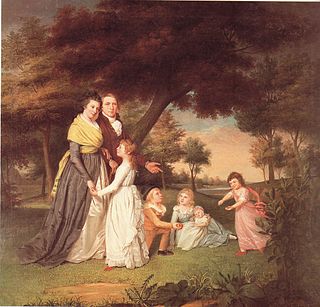
"Republican Motherhood" is an 18th-century term for an attitude toward women's roles present in the emerging United States before, during, and after the American Revolution. It centered on the belief that the patriots' daughters should be raised to uphold the ideals of republicanism, in order to pass on republican values to the next generation. In this way, the "Republican Mother" was considered a custodian of civic virtue responsible for upholding the morality of her husband and children. Although it is an anachronism, the period of Republican Motherhood is hard to categorize in the history of Feminism. On the one hand, it reinforced the idea of a domestic women's sphere separate from the public world of men. On the other hand, it encouraged the education of women and invested their "traditional" sphere with a dignity and importance that had been missing from previous conceptions of Women's work.
The Mount Vernon Seminary and College was a private women's college in Washington, D.C. It was purchased by George Washington University in 1999, and is now known as the Mount Vernon Campus of The George Washington University.

When Saudi Arabia formally became a nation in 1932, education was largely limited to instruction for a select few in Islamic schools. Today, public education—from primary education through college—is open to every Saudi citizen. The second largest governmental spending in Saudi Arabia goes for education. Saudi Arabia spends 8.8 % of its gross domestic product on education, compared with the global average of 4.6%, which is nearly double the global average on education. To this day, Saudi education is centered around the study of Islam, though is now becoming more diverse.
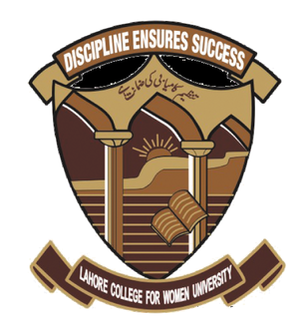
The Lahore College for Women University (LCWU) is a public university in Lahore, Punjab, Pakistan.
Women's colleges in the United States are single-sex U.S. institutions of higher education that only admit female students. They are often liberal arts colleges. There were approximately 34 active women's colleges in the United States in 2018, down from a peak of 281 such colleges in the 1960s.
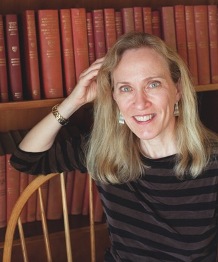
Claudia Goldin is the Henry Lee Professor of Economics at Harvard University and director of the Development of the American Economy program at the National Bureau of Economic Research. Goldin was the president of the American Economic Association in 2013–14. In 1990, she became the first woman to be tenured at the Harvard economics department. Her research includes topics such as female labor force, income inequality, education, and the economic gender gap. She is a member of the U.S. National Academy of Sciences.
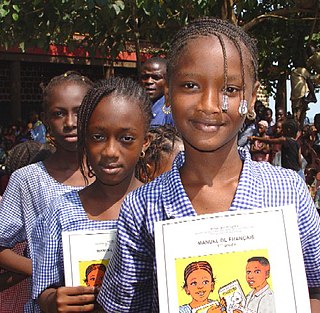
Female education is a catch-all term of a complex set of issues and debates surrounding education for girls and women. It includes areas of gender equality and access to education, and its connection to the alleviation of poverty. Also involved are the issues of single-sex education and religious education, in that the division of education along gender lines as well as religious teachings on education have been traditionally dominant and are still highly relevant in contemporary discussions of educating females as a global consideration. It has been shown that under-representation of girls and women in science, technology, engineering and mathematics (STEM) education is deep rooted.
Higher education was designed for men in colonial America. Since the 1800s women's positions and opportunities in the educational sphere have increased. In 1980, women surpassed men in number of bachelor's degrees conferred annually in the United States, and more bachelor's degrees have been conferred on women each year since. Since 2005, the majority of degrees in each category have been conferred on women in the U.S.
Joseph John Spengler was an American economist, statistician, and historian of economic thought. A recipient of the 1951 John Frederick Lewis Award of the American Philosophical Society and the 1981 Distinguished Fellow Award from the History of Economics Society, he was Professor Emeritus of Economics at Duke University at the time of his death.
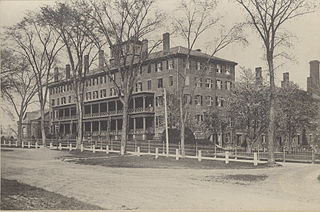
A female seminary is a private educational institution for women, popular especially in the United States in the nineteenth and early twentieth centuries, when opportunities in educational institutions for women were scarce. The movement was a significant part of a remarkable transformation in American education in the period 1820–1850. Supporting academic education for women, the seminaries were part of a large and growing trend toward women's 'equality'. Some trace its roots to 1815, and characterize it as at the confluence of various liberation movements. Some of the seminaries gradually developed as four-year colleges.
Mary E. Sweeney was a Home Economics professional who was head of the Home Economics Section of the United States Food Administration during World War I. Sweeney was President of American Home Economics Association.

Women in Africa are women who were born, live, and are from the continent of Africa. The culture, evolution, and history of African women reflect the evolution and history of the African continent itself.

This is a timeline of women's education.